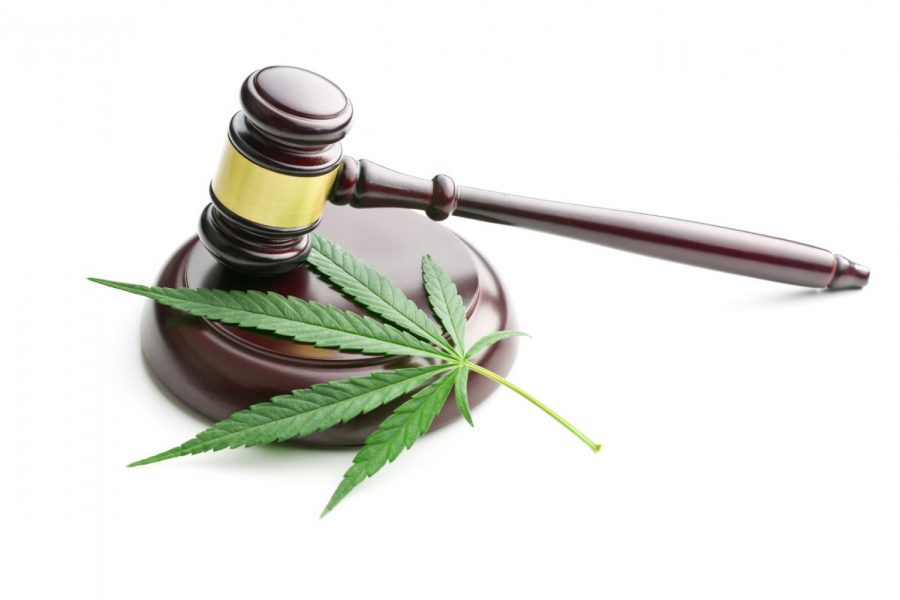US drug laws are far too strict on marijuana
October 28, 2018
Opioids are running roughshod over the American populace, and the cure grows from the ground in the form of cannabis. The plant fails to grow because the U.S. government refuses to utilize its full potential and would much rather stick to the same old over-the-counter drug medicine. The legalization of recreational marijuana in Canada shows how harsh the drug laws are in the U.S. An opioid epidemic runs rampant, but the U.S. government’s disdain for a plant rather than a synthetic drug is unfathomably ridiculous.
The marijuana argument is a tired case to argue, as a majority of the public has become accepting of the drug.
“Today, 57 percent of U.S. adults say the use of marijuana should be made legal … A decade ago, opinion on legalizing marijuana was nearly the reverse—just 32 percent favored legalization,” according to an Oct. 2016 Pew Research article.
Marijuana legality isn’t facing future backlash with many adults approving the change. This puts its illegal status into question. The U.S. legality of marijuana us is confusing; while nine states approve of recreational marijuana, 31 states approve of medicinal use, yet it’s federally illegal. The best analogy to summarize this half-brained law is being allowed to ride a bike only on Wednesdays when it’s raining, but if it rains more than two inches, the person goes to jail.
“Politics are behind [marijuana legalization],” senior computer science major, Aaron Jones, who is also president of Young Americans for Liberty, said. “Private prisons, pharmaceutical companies and law enforcement agencies are behind it.”
Surely, that sounds like a conspiracy theory, but the claim has merit. Marijuana arrests now account for over half of all drug arrests in the U.S., according to the ACLU webpage. With a growing trend of states legalizing marijuana, this statistic perpetuates the idea that private prisons have much to gain from massive marijuana arrests.
Jones also said he supports marijuana over prescribed opioid narcotics, and believes the opioid crisis is more of a heroin and fentanyl crisis.
Fentanyl is a highly addictive opioid drug that is used for chronic pain and can be prescribed without government regulation. Essentially, a person can be prescribed a dangerously addictive drug without hesitation, and someone who uses cannabis is arrested.
“I think we need to reevaluate pain and illness,” senior political science major, Ian Pearson, who is also president of the College Democrats said. “Pharmaceuticals and lobbying need to continue researching.”
What is allowed and what isn’t in terms of pain relief is ridiculous in the current year. In the 19th century, cocaine was an acceptable over-the-counter drug; when it is looked upon in history, the current opioid crisis will have that same view of shock. Cannabis can be used in a multitude of ways for the user and, in some cases, can be used for pets.
Cannabis can be used a multitude of ways other than the intense euphoric hallucinogenic effects that are often brought up. Cannabis has been effective in combating seizures in young adults; in a controlled study, it lowered the motor seizure rate by nearly 37 percent, according to a Jan. 2016 Scientific American article.
Many people are turning to CBD oil for anxiety and joint pain for themselves and their pets, according to a report from CBS Minnesota on Oct. 9. They also stated that veterinarians and doctors cannot prescribe it, but word of mouth of the medical advantages has been a major factor in the usage.
Legalization of marijuana has taken a major step with Canada’s recent law passage, and yet the U.S. lags. Medical benefits for the use of CBD oils and other forms of cannabis are crucial for many afflicted with pain or other medical issues. It’s time for change to take place, and let’s light up the book of law to revoke this ridiculous second act of prohibition.














